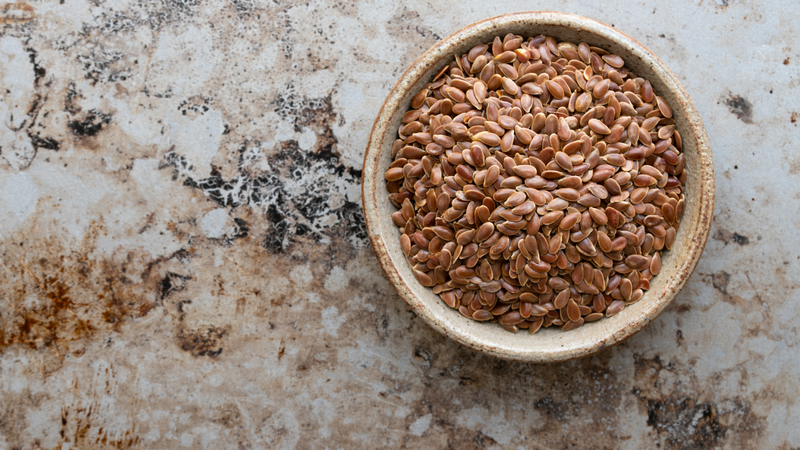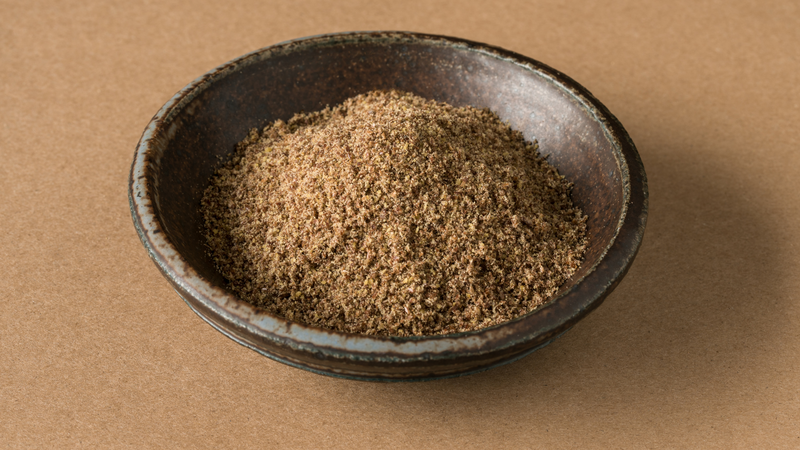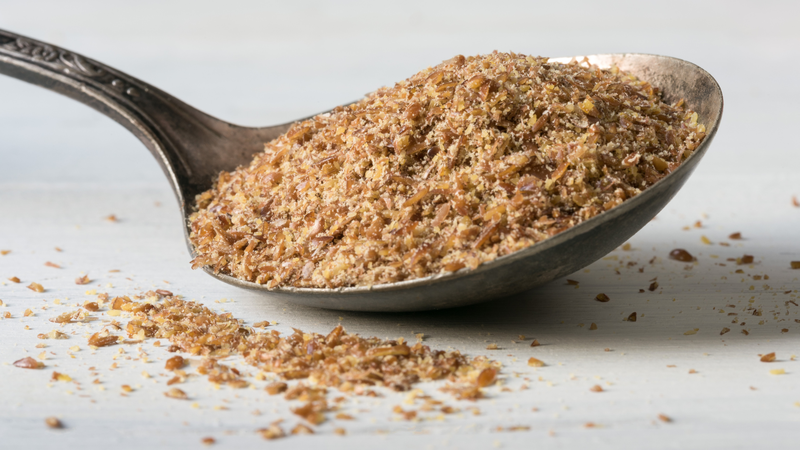Flaxseed is a food source that provides outstanding nutritional value, especially omega-3, fiber and beneficial antioxidants. However, few people know that besides the health benefits, improper or excessive use of flaxseed can cause some unwanted side effects. Let’s learn more about the side effects of flaxseed in the article below!
Flaxseed is a nutritious food source, rich in omega-3, fiber and antioxidants, bringing many health benefits. However, flaxseed can also cause some side effects if not used properly. Especially for people with a medical history or when overdosed, the side effects of flaxseed can have a negative impact on health. Let’s learn about the side effects of flaxseed that you need to pay attention to in order to use them safely and effectively.
Flaxseed Nutrition Facts
Flaxseeds are known to be a food source containing many important nutrients for the body. According to information from the United States Department of Agriculture, each tablespoon of flaxseed powder (about 7g) provides 37.4 calories, 1.28g protein, 2.95g fat, 2.02g carbohydrates, and 1.91g fiber. In addition, it also contains essential minerals such as 17.8mg calcium, 27.4mg magnesium, 44.9mg phosphorus, and 56.9mg potassium. Flaxseeds also provide 6.09mcg folate, along with 45.6mcg zeaxanthin and lutein, two antioxidants that are beneficial for the eyes.

Flaxseeds provide a significant amount of unsaturated fatty acids.
In addition, flaxseeds also provide a significant amount of unsaturated fatty acids, especially omega-3s, which help support heart health. In addition to omega-3s, flaxseeds also contain plant compounds such as lignans, tryptophan, lysine, valine, and tyrosine, all of which play an important role in maintaining overall health.
Flaxseed Side Effects You Should Be Aware of
Although flaxseeds are known for their many health benefits, they also pose many potential risks if not used properly.
Allergy Risk
Like other seeds, flaxseeds (and flaxseed oil) can cause allergic reactions in some people. Common allergic symptoms include skin rashes, tingling, and in some cases, vomiting. A 42-year-old woman experienced difficulty breathing and a rash after consuming flaxseed powder. In fact, consuming too much flaxseed can lead to anaphylactic shock and facial swelling, which should be taken into account especially for those with sensitive skin.
Increased risk of bleeding
Flaxseeds are rich in omega-3 fatty acids, which are important for heart and brain health. However, omega-3s can also reduce the ability of blood to clot, leading to increased bleeding or anemia. This can cause symptoms such as fatigue, dizziness, and easy bruising. If you are taking blood thinners or are about to have surgery, consult your doctor before adding flaxseeds to your diet.
Excess fiber
Flaxseeds are rich in fiber, and if consumed in excess, it can lead to diarrhea or cause blockages in the digestive system. In particular, for those with irritable bowel syndrome (IBS) or constipation problems, flaxseeds can aggravate symptoms. To avoid this side effect, you should supplement with small amounts of flaxseed and gradually increase as your body gets used to the high fiber content. It is best to consult your doctor to know the safe dosage.
Effects on pregnant and lactating women
During pregnancy and lactation, a diet rich in flaxseed can affect thyroid function, as it can disrupt the metabolism of thyroid hormones. This can cause serious health problems for both mother and baby. Therefore, women during this time should consult their doctor before adding flaxseed to their diet.

Pregnant and lactating women should consult their doctor before taking flaxseed supplements.
Risk of cyanide poisoning
Raw flaxseeds contain small amounts of cyanide compounds, which can be toxic if consumed in large amounts. However, these compounds will decompose and become less toxic when flaxseeds are roasted or cooked. Therefore, to ensure safety, you should avoid eating raw flaxseeds and only use processed flaxseeds.
In general, flaxseeds provide many nutritional benefits, but you need to use them reasonably and consult a doctor to avoid unwanted side effects.
What should you pay attention to when using flaxseeds?
Flaxseeds are a valuable source of nutrients with many health benefits, but to maximize their value, you need to pay attention to the following when using them:
Grind before use
Flaxseeds have a hard shell, making it difficult for the body to digest if used whole. Therefore, to ensure you absorb all the nutrients, grind the flaxseeds before using. You can also choose to buy pre-ground flaxseed, but pay attention to the origin and quality of the product.

Grind flaxseed before use.
Proper storage
Flaxseed oil is very sensitive to light and heat, and can oxidize and lose its nutritional value if exposed to strong light for a long time. Therefore, when storing flaxseed, you should keep it in a dark, tightly closed jar to avoid direct exposure to light and air. Keeping flaxseed in a cool, dry place is the best way to preserve its quality.
Do not use raw or unprocessed flaxseed
Although flaxseed is rich in nutrients, raw or underprocessed flaxseed can contain toxic compounds that can cause poisoning if consumed in large quantities. Therefore, make sure you use flaxseed that has been properly processed or cooked before eating.

Some side effects of flaxseed you need to note
Control your intake to avoid digestive problems
The fiber in flaxseeds is very beneficial for the digestive system, but if used excessively, especially when the body is not used to it, it can cause problems such as bloating, indigestion or diarrhea. Start with a small amount and gradually increase to give the body time to adapt.
Who should not use flaxseeds
Although flaxseeds are very good for health, not everyone should use them. Pregnant or breastfeeding women, people with blood clotting disorders, breast cancer patients, and people allergic to flaxseeds should avoid using this type of seed or consult a doctor before adding it to their diet.
Hopefully through the content of the article, you have more information about the side effects of flaxseeds that you need to pay attention to. Flaxseeds bring many great health benefits, but using them properly will help you maximize their nutritional value and avoid the side effects of flaxseeds





